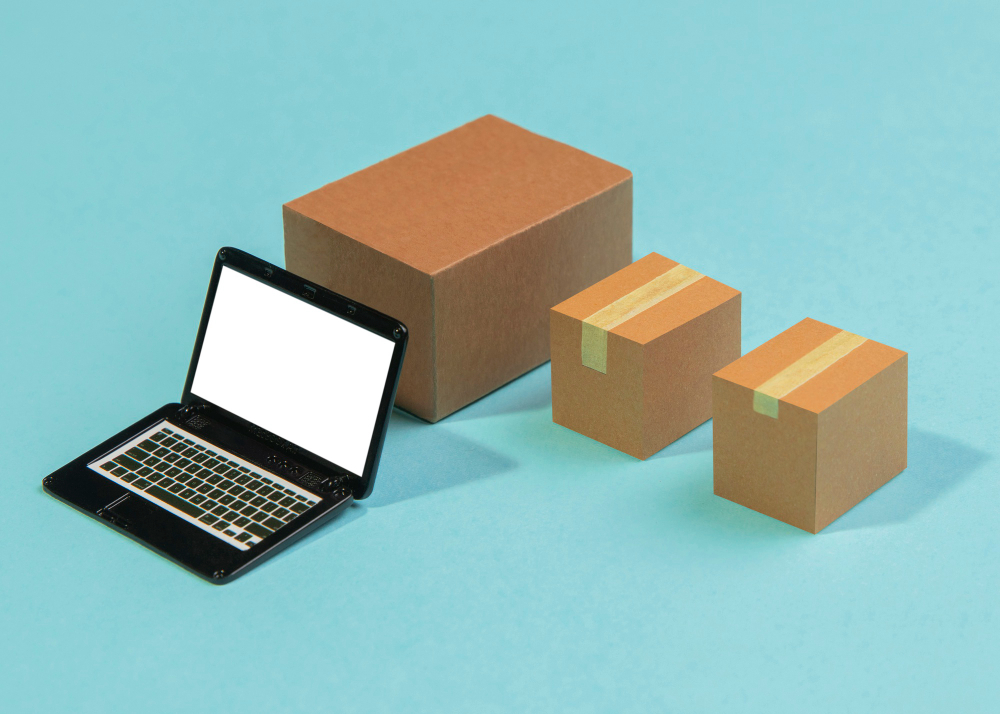Introduction
If you’ve ever tried sending a phone or laptop abroad, you already know the normal wahala: phones disappear, laptops break, and customs can hold your gadget like it owes them money. 😩
But honestly, shipping electronics from Nigeria to the US doesn’t have to be a problem like this. With the right steps, you can send your device quickly, safely, and without unnecessary stress.
When you want to do any of these:
- Sending a phone to your cousin in Atlanta
- Shipping laptops for resale
- Returning gadgets for repair or exchange
…this guide will break down exactly how to do it the safe way. Let’s dive in.
What Electronics Can You Ship From Nigeria To The US?
The short answer? Almost anything—if it’s genuine, packaged well, and declared properly at customs.
Some of the most common items Nigerians ship include:
- Smartphones (Samsung, iPhone, Infinix, etc.)
- Laptops and tablets
- Smartwatches
- Cameras and accessories
- Gaming consoles (PS5, Xbox, Nintendo Switch)
- Bluetooth devices, headphones, and speakers
- Drones and surveillance cameras (extra documentation may be needed)
If you’re thinking of shipping, chances are someone else has already sent the same gadget successfully with reliable and emotion-friendly partners.
Step-by-Step: How to Ship Electronics from Nigeria to the USA
Step 1: Prepare Your Device Before Shipping
Before you even touch a carton, do these quick checks:
- Backup and factory reset your device
- Remove SIM and memory cards
- Write down the IMEI/serial number (for tracking)
- Add receipts/invoices if you have them (especially if you’re reselling)
- Discharge lithium batteries if possible (airlines require this)
Think of it like sending your gadget to “boarding school.” You want it prepped and ready.
Step 2: Package Electronics Properly (So They Don’t Break)
Most damages don’t come from shipping itself—they happen because people package their gadgets like akara. 🤦🏽♂️
Here’s the proper way:
- Use the original manufacturer’s box if you still have it
- Wrap with anti-static bubble wrap
- Place inside a strong cardboard box with foam/bubble cushioning
- Seal tightly with packing tape
- Mark the box “FRAGILE – ELECTRONICS”
- Never use nylon bags or “Ghana-must-go”
👉 Pro tip: If you’re sending multiple items, wrap each one separately before boxing them together.
Step 3: Pick The Right Shipping Company
This step can make or break your shipment (literally). The wrong courier = delays, damages, or worse—customs seizures.
When choosing, look out for:
- Experience with electronics shipping
- Tracking & insurance
- Customs clearance support
- Transparent pricing & delivery timelines
Best Options For Nigerians Shipping Electronics To The US
AfroShipper Logistics ✅ (recommended)
- Specializes in phones, laptops & gadgets
- Affordable bulk rates for businesses
- Full-value insurance & secure packaging
- Door-to-door delivery anywhere in the US
DHL Express Nigeria
- Reliable for small, urgent items
- Great customs support
- More expensive for bulk shipments
FedEx (via Red Star Express)
- Works well for business exports
- Offers tracking & insurance
- Requires detailed paperwork
While DHL and FedEx are solid, AfroShipper is built specifically around electronics shipping—making it the smarter, more affordable choice for Nigerians.
Step 4: Get Your Shipping Documents Right
Customs no dey joke. If your papers aren’t complete, your gadget will sit in a warehouse longer than NEPA light.
Always have:
- Shipping invoice/waybill
- Customs declaration form (couriers give you this)
- Proof of purchase (for high-value items)
- Recipient’s full details (name, US address, phone, ZIP code)
⚠️ Don’t try to be smart by declaring a laptop as “gift” or undervaluing it. Customs may seize under-declared packages.
Step 5: Choose The Best Shipping Method
Now that packaging and documents are set, let’s talk delivery speed.
Courier/Express Shipping (AfroShipper, DHL, FedEx)
- Best for phones, tablets, and small gadgets
- 3–7 business days
- Tracking, insurance, and customs support included
Air Freight
- Cheaper if you’re shipping multiple items/business stock
- 7–10 business days
- Needs clearance support in the US
Sea Freight
- Only makes sense for wholesale/large shipments
- 4–6 weeks
- Not ideal for fragile electronics
Should You Insure Your Electronics?
Yes. Always.
AfroShipper, DHL, and FedEx all have basic liability coverage, but AfroShipper goes further with full-value insurance—so if anything happens, you don’t lose your hard-earned money.
Regardless, always request a receipt or tracking ID with insurance terms before handing over your package to your courier partners.
US Customs Rules For Electronics
Good news: most personal electronics under $800 enter the US duty-free. But customs can still:
- Inspect or delay packages
- Ask for proof of value
- Charge duties for resale/business shipments
👉 Don’t under-declare value—it’s not worth the risk of confiscation.
Extra Tips For Business Owners
If you run an electronics business, here’s how to stay sharp:
- Get an NEPC export license
- Partner with AfroShipper for B2B exports
- Label shipments with barcodes & SKUs
- Track IMEI/serial numbers
- Always ship with insurance
Frequently Asked Questions
Q: Can I ship a used phone/laptop to the US?
Yes—just reset, package well, and declare it properly.
Q: How long does it take?
3–7 days (courier) or 7–10 days (air freight).
Q: Will I pay US tax?
Not usually if under $800 and for personal use.
Q: Is it safe to ship electronics internationally?
Yes—if you use a trusted logistics partner like AfroShipper.
Final Thoughts
Shipping electronics from Nigeria to the US doesn’t have to feel like a stressful game. With the right packaging, proper paperwork, and a reliable logistics partner, your gadget will land safely in the US faster than you think.
AfroShipper is your reliable partner for stress-free, affordable, and insured shipping
Contact us TODAY!!!!






